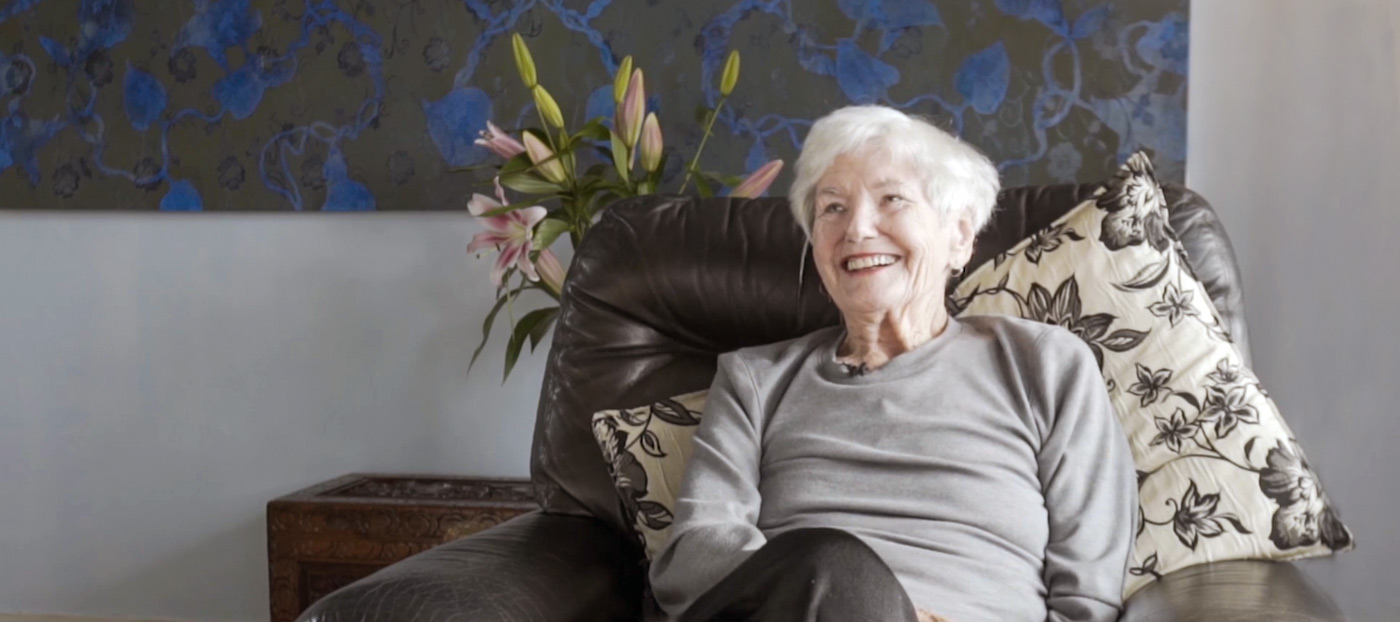Brisbane – Melbourne – Sydney – Perth – Adelaide
Brisbane – Melbourne – Sydney – Perth – Adelaide
By helping with Daily Living, our support workers enable clients to maintain their normal daily routines. Hourly home care for elderly, gives the client the flexibility to choose the most suitable times for service. Surrounded by their possessions, pets, and familiar environment, our clients receive the support they need and enjoy their regular activities.
Our Support Workers assist clients in living their everyday lives with their flexible hourly home care services. Whether a client needs help grooming or cooking or just requires simple companionship, our Support Workers will be able to assist them. Here's a full list of our hourly home care services for clients.
Here's a full list of our hourly home care services for clients.

As individuals age, it becomes more and more difficult to muster the energy it takes to cook and clean for themselves. While most want their homes to be spotless and their meals to be nutritious, sometimes they just don't have what it takes to get those things done. And they often tire themselves out before the can finish their chores. This is where a Support Worker can come in handy. Whether your energy is depleted or you need a second pair of hands in the kitchen to assist you, TGCA Support Workers can do whatever it takes to make sure they enjoy hearty meals.
In addition to cooking, they can help out with light cleaning around the home. From emptying the dishwasher to cleaning the living room and taking out the trash, clients can count on our Support Workers to keep their living area comfortable and tidy.

Laundry can be challenging for many clients. Laundry rooms are at times on a different level to the bedroom which requires carrying a heavy or awkward basket of clothes up a flight of stairs or two. Even if the laundry room is on the same floor, it can be difficult to bend and lift as you age. Fortunately, our Support Workers can handle doing loads of laundry while keeping clients company. Even if clients want to retain a routine of doing their own laundry, our support workers can act as a helping hand to do the heavy-lifting, to make sure that they don't overexert or hurt themselves.
Changing bed linens can also be quite difficult for anyone on their own, but is even more challenging for some clients. Our Support Workers can take over this task or simply provide assistance with it.

Mobility can be an issue for some clients, which is why our caretakers are able to do the grocery shopping and take care of any other household or personal errands, such as going to the pharmacy or hardware store.
An outing to the grocery store can be good for clients, but it can take a toll on them with all the walking and lifting. If clients would still like to enjoy the routine of going out to the supermarket and choosing their groceries, Support Workers can simply assist them to ensure they don't tire themselves. On the other hand, if a client would like to stay home and rest, our Support Workers can go out to the store or on any other errand, get everything the client needs, and bring it back home for them the choice is theirs.

You know what they say - when you look good, you feel good. A big part of looking and feeling good is taking care of and grooming yourself. However, some clients may have a hard time and may need assistance when it comes to this kind of self-care; fortunately, our Support Workers can help with that, too. Whether assistance is needed for bathing, dressing, or brushing hair or teeth, our trained professionals will be able to help get it done, safely and quickly.
A common misconception is that Support Workers are for people who are unable to help themselves. On the contrary, many of our Support Workers act as companions for clients who tend to spend most of their time at home, alone. While physical health is important, emotional health is just as essential to one's well-being.
Having some companionship and someone to talk to could be the thing that keeps you in a good mood, up to date on the world around you. Lack of mental stimulation tends to contribute to decline in general health. For this reason, our home care services include companionship as a part of the service.
In addition to providing mental and emotional support in the form of companionship, our Support Workers can also create light exercise plans for clients that'll get them up and moving. The benefits of light to moderate exercise for clients include:
There's nothing worse than sitting around not moving all day and being under-stimulated or even lonely. The companionship and physical exercise routine provided by Support Workers will ensure that clients stay healthy, both mentally and physically.
Clients need to get around every now and then to be able to live their lives the way they want. Our Support Workers will relieve the burden from family members of having to pick clients up and take them for groceries, to the pharmacy, or to their doctor's appointments. All of our trained staff will be able to help clients get to and from the supermarket, pick up their medications, and get to any doctor appointments they have scheduled.
Sometimes elderly family members have mobility issues that make it hard for them to get around. Luckily, our Support Workers are trained to be able to help clients walk or to transfer them from their wheelchair to the bed, and vice versa, safely. Using professional techniques and proven strategies, TGCA Support Workers can help clients get around their home, assist them in walking safely while they're out and about, and help them back into bed when they're ready.
When clients live alone, it can be tough for their family members to gauge how well they're doing. For example, those who have dementia may forget to tell their family abut a pain they've been having or a medication they need to refill. When a Support Worker is present, they can take note of all the little things throughout the day and update family members accordingly. Here at TGCA, we know how important it is to keep families in the loop, which is why all of our Support Workers can provide full status reporting to family members, upon request. This way, family members will always know what's going on and everyone will be on the same page when it comes to the client's care plan and daily needs.
Medication reminders are extremely important for clients, especially for those with dementia or Alzheimer's who are prone to forgetting. Support workers will familiarize themselves with the care plan of the individual client and ensure that they stay on top of taking their medication throughout the day.
Live-In Care provides older adults with full-time, around the clock care. Clients and their families can have peace of mind with reliable, live-in Support Workers that monitor safety, attend to any immediate or daily needs and provide companionship.
Many people over the age of 65 report that they wish to age in place, at home. However, frailty, chronic illness or forgetfulness can make living alone too difficult. In these cases, live-in care allows your loved one to remain in the comfort of his or her home and maintain as much independence as possible while ensuring the highest level of safety. With full-time, around the clock care, a Support Worker is always watching over your loved one, offering emotional support, reducing fall risk and assisting in all activities of daily living including:
If you're looking for a comprehensive, cost efficient alternative to any type of facility, live-in care is the choice for you. The emotional strain associated with moving away from the familiarity and comfort of home often leads to physical decline, further loss of independence and diminished quality of life. Providing assistance with live-in care allows your loved one to remain in his or her home, promoting optimal emotional well-being. In addition, Support Workers offer a much more personalized plan of care with one-to-one support tailored to the status, conditions, preferences, hobbies and lifestyle of the individual.

Older Australians have made their voices heard loud and clear - most of them would like to live out their years at home. The pace at which the senior population is growing in Australia has bolstered the healthcare industry to find solutions that adequately care for the elderly, with home care leading the preferences. But making the transition from the hospital to the home can be difficult if the right people or conditions aren't in place or if the family isn't prepared to handle the demanding task of post-hospitalization care.
It's always encouraging and a blessing when family members are willing to take on the responsibility of caring for loved ones when they are released from the hospital. Long term care facilities are not the first choice for seniors, who for whatever health reason, can't live on their own. But keep in mind that being at home can present its own set of challenges if family members aren't ready to handle the change.
Caring for an elderly loved one may be time consuming, as well as emotionally, physically, and psychologically draining. It often calls for a sharp shift in one's lifestyle.
In addition to the emotional changes, there are actual medical procedures and other considerations that need to be followed up with to keep your loved one healthy and safe when they decide to live at home. For example, there may be a need for architectural changes to the home, a set schedule for medications, daily activity routines and doctor visits. Depending on the extent of care needed, taking on the responsibility of caring for an elderly loved one living at home is one that could require more than one family member - so coordinating schedules might become an issue.
The first thing to keep in mind is that you are making a commitment to care for your loved one at home along with that commitment comes a promise of accountability that can't be broken. Accepting this responsibility sets the tone for the household and a positive environment is just as important as any other factor.
The first practical step you can take towards caring for a loved one is speaking with the doctors and nurses at the hospital. Learn what you can about the condition, disease, or ailment that is affecting your loved one and ask questions to determine the best practices to ensure all guidelines are followed.
Next, you need to speak to a family doctor for much of the same reasons. The more information you receive, the better. With the family doctor having a more intimate history with your loved one, you may get more insight or a different perspective on ways in which to care for them that is specific to their personality. Collect all relevant contact information from the doctor and keep it in a visible place that's easy to access for your loved one.
It's important the house is properly set up, as well. Items should be easy to reach and in full view. If going up and down the stairs is an issue, then other arrangements must be made to accommodate. Sometimes all it takes is to move a few things around other times it may be a bit more labour intensive.
We've made it clear that facilitating the transition from a hospital to home care is not all that easy. Hiring a professional Support Worker from TGCA will provide you with peace of mind, knowing your loved one is in capable hands.
Our Support Workers are skilled at handling the transition from the hospital to the home and have the experience to care for your loved one around the clock, if needed. From meal preparation and medication reminders, to transport to and from doctor's appointments.
You obviously want what's best for your loved one and want to ensure their health and safety is top priority. Hiring a professional Support Worker doesn't mean you're not involved in the care, it simply means you trust us to use our expertise and be a support system to fill in the gaps where we can.
Contact us today for more information on what we do to help older Australians successfully live their lives in the prime place they know and love: home.
You want a friendly, skilled and consistent Support worker in the comfort of your own space? Engage a TGCA support professional. Too often we underestimate the power of a touch, a smile, a kind word, a listening ear, an honest compliment, or the smallest act of caring, all of which have the potential to turn a life around.
To request a call back email
info@tgcacare.com.au
Providing Disability Services, In Home Elderly Support & Companionship, In Home Nursing.